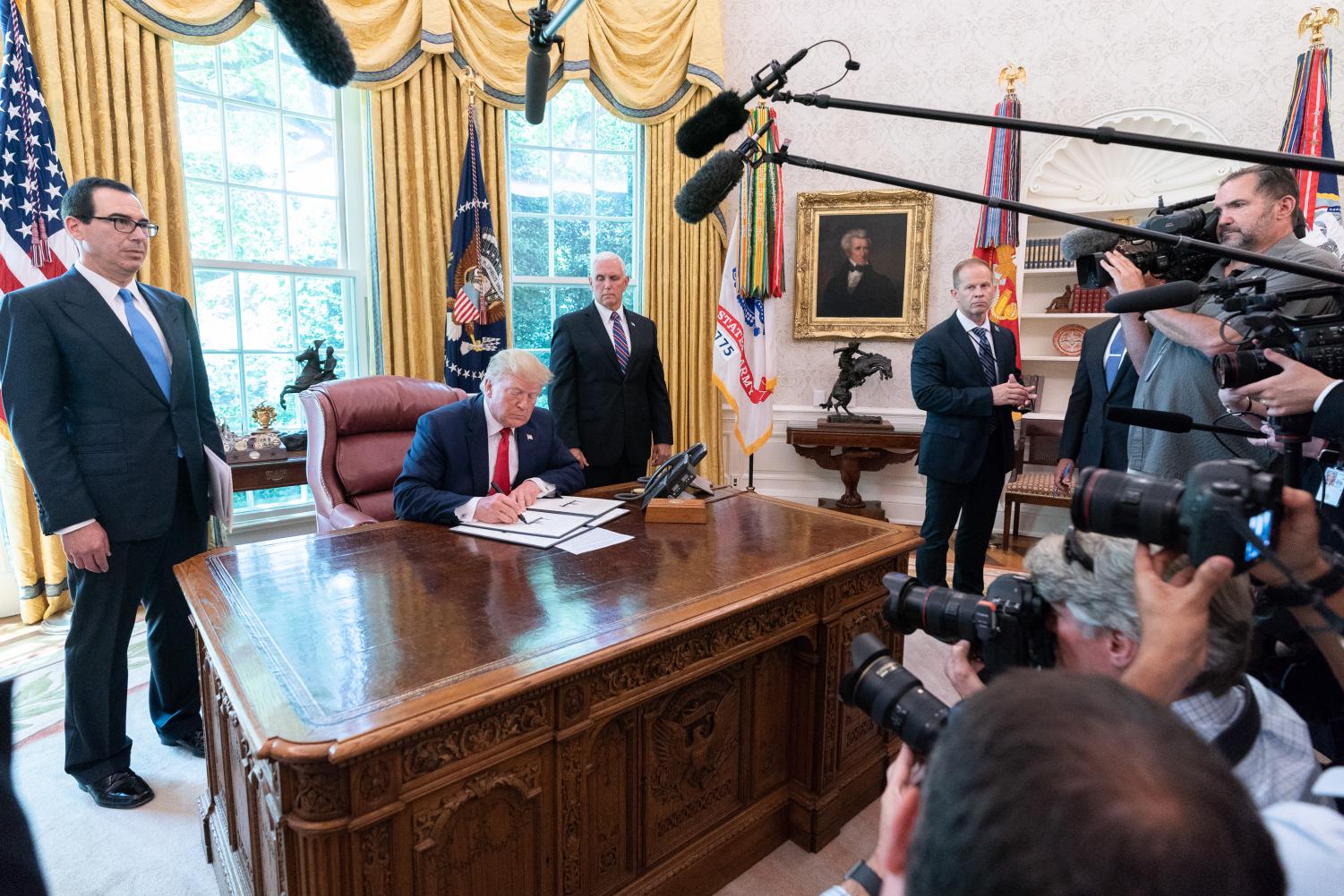In the wake of an Iranian-sponsored attack on vital Saudi-Arabian oil facilities, President Donald Trump announced tighter sanctions on Iran. Despite the fact that these sanctions are unlikely to bring about any meaningful change, the United States should continue to enact them.
HOW LONG HAS THIS GONE ON?
The United States issued numerous sanctions and economic restrictions on Iran over the past 40 years, according to The Atlantic Council. Sanctions are defined by Merriam-Webster as actions taken against a foreign government in response to a violation of international law. These actions are usually economic, as that is by far the easiest and most effective method of peaceful aggression against another country.
According to The Atlantic Council, the first sanctions implemented by the United States against Iran were ratified in 1979 by then-President Jimmy Carter. Since then, over a dozen different sanctions, executive orders, trade agreements and arms agreements have been implemented by both the United States and other western countries against Iran.
In 1984, Iran was classified as a state sponsor of terrorism, the classification bringing with it numerous additional economic restrictions on trade to the United States. Additional restrictions were passed in 1992, 1996 and 1997, all targeting international business. Starting in 2007, and continuing on to the present day, the focus of the sanctions became the development and enriching of nuclear weapons by the Iranian government.
As of today, the United States under President Trump currently restricts all major trade with Iran. So much so that Trump’s recent promises to increase sanctions actually fall rather flat. Not because he is unlikely to follow through, but because there are simply not any areas in the Iranian economy left that are not already under harsh sanction.
WHY DO WE SANCTION?
But why is the United States so determined to pressure Iran? It seems that we have a vendetta against the nation, but for what reason are we consistently economically crippling them? There are two primary reasons: human rights abuses and state sponsoring of terrorism.
According to Human Rights Watch, Iran has a long history of egregious assaults against basic human rights. Peaceable assembly and freedom of speech are nonexistent, so there is very little opportunity to speak out against the abuses carried out every day. They also say that the Iranian government has been oppressive and even violent toward women, queer Iranians, religious minorities and ethnic minorities. The Iranian government stands in opposition to many of the values of tolerance and equality which we take for granted in America. It is in response to these assaults on human dignity that the United States continues to sanction Iran.
Additionally, the Iranian government’s deliberate and consistent sponsorship of terror serves as a considerable disincentive for trade with the West. According to the Terrorism Research Initiative, a non-profit dedicated to studying terror and its relationship with state sponsorship, Iran has been financially supporting terror groups such as Hezbollah since the end of the Cold War.
SHOULD WE CONTINUE?
There are very few areas of the Iranian economy that the U.S. does not already heavily sanction. With this in mind, these newly proposed sanctions are unlikely to actually make a significant difference in the country’s economy. Not because they are too weak, but because the U.S. can only squeeze a country so hard.
The U.S. should not let up its pressure, nor provide avenues for Iran to escape from under these restrictions without complying to the leveled demands. There is a certain honor and integrity in maintaining a firm stance against actions we find abhorrent, even if we are unable to affect them or prevent them. In continuing our sanctions against Iran, the U.S. is reaffirming its profound disapproval of the human rights abuses committed therein.








